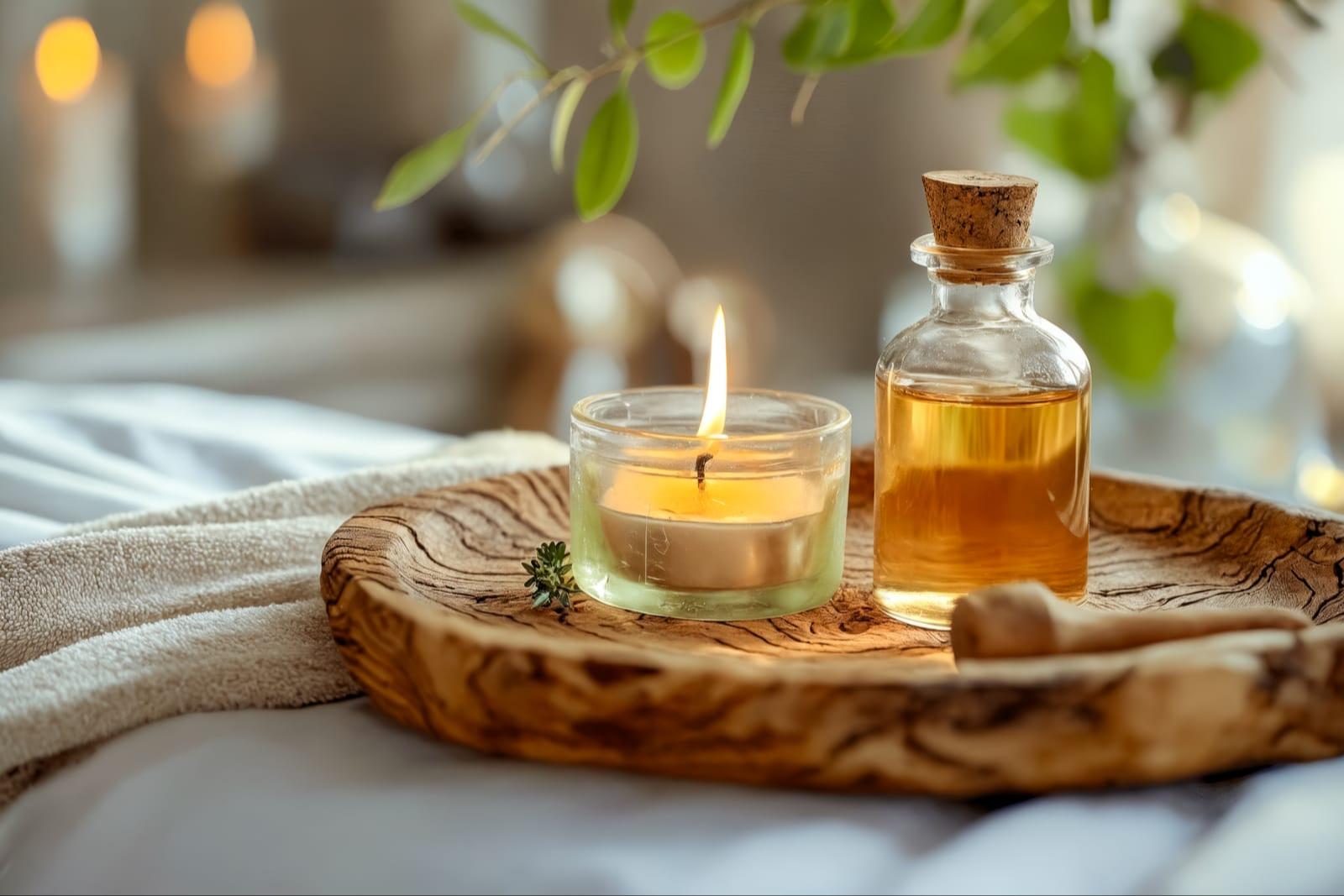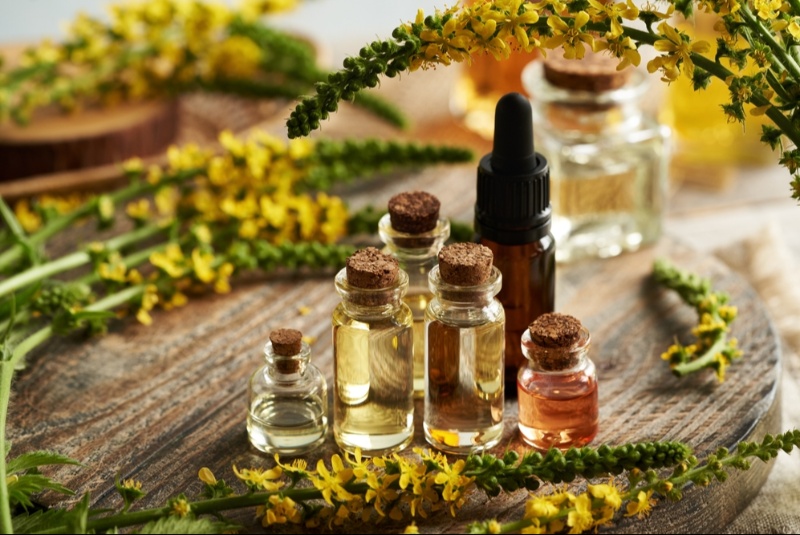Essential oils have gained immense popularity for their therapeutic benefits, from promoting relaxation to enhancing skincare routines. However, the market for essential oils is vast and varied, making it challenging to distinguish high-quality products from lower-grade alternatives. To ensure you’re getting the best value for your money, it’s crucial to know what to look for when shopping for essential oils. This guide offers practical tips on how to select high-quality essential oils, helping you make informed decisions that enhance your wellness journey.
Understand the Importance of Purity
Purity is the most important factor when it comes to essential oils. Pure essential oils contain no additives, fillers, or synthetic ingredients, which can dilute their effectiveness and potentially cause adverse reactions. When shopping, look for products labeled as 100% pure or therapeutic grade, which indicates that the oil is unadulterated. Avoid oils that list vague ingredients like "fragrance" or "perfume," as these often contain synthetic compounds. Understanding the importance of purity ensures that you’re purchasing essential oils that offer the full range of benefits without compromising on quality.
Research the Source of the Essential Oils
The origin of essential oils plays a significant role in their quality. High-quality essential oils are often sourced from regions where the plants are naturally grown and harvested under ideal conditions. Researching where an oil is sourced can provide insight into its purity and potency. For example, lavender oil from France, tea tree oil from Australia, and frankincense from Oman are known for their superior quality. Additionally, consider whether the plants were grown organically or sustainably, as this can impact the purity of the oil. By researching the source, you can ensure that you’re buying essential oils with the highest quality and therapeutic value.
Check for GC/MS Testing
Gas Chromatography-Mass Spectrometry (GC/MS) testing is a method used to analyze the chemical composition of essential oils. High-quality essential oils should be accompanied by a GC/MS report, which verifies the oil’s purity and identifies its specific chemical constituents. Reputable brands often provide these reports to assure customers of their product’s quality. When shopping, look for brands that offer transparency about their testing processes and provide access to GC/MS reports. Checking for GC/MS testing ensures that you’re purchasing essential oils that are both pure and effective, giving you confidence in your selection.
Consider the Packaging
The packaging of essential oils is more than just aesthetic; it plays a crucial role in preserving the oil’s quality. High-quality essential oils should be stored in dark glass bottles, typically amber or cobalt blue, which protect the oil from light exposure and prevent degradation. Avoid oils sold in plastic or clear glass containers, as these materials can react with the oil and cause it to deteriorate. Additionally, the bottle should be tightly sealed with a dropper or orifice reducer to minimize exposure to air. Considering the packaging ensures that your essential oils remain potent and effective over time.
Evaluate the Price
While price isn’t always an indicator of quality, it can provide valuable clues when shopping for essential oils. High-quality essential oils often require significant resources to produce, which is reflected in their price. If an oil is priced significantly lower than similar products, it may be a sign that it has been diluted or is of lower quality. On the other hand, excessively high prices don’t always guarantee better quality. The key is to find a balance and understand that pure, high-quality essential oils are an investment in your health and wellness. Evaluating the price helps you make informed decisions without falling for cheap imitations.
Verify the Brand’s Reputation
The reputation of the brand is a crucial factor when selecting high-quality essential oils. Established brands with a history of producing pure and potent oils are generally more reliable than unknown or untested companies. Research customer reviews, check for third-party certifications, and see if the brand is recommended by experts in the field of aromatherapy or natural health. A reputable brand will often have a strong commitment to quality, transparency, and customer satisfaction. Verifying the brand’s reputation gives you peace of mind that you’re buying from a trusted source that prioritizes quality and safety.

Look for Botanical Names
The botanical name of the plant from which the essential oil is derived is an important detail to look for on the label. High-quality essential oils will list the plant’s scientific name (e.g., Lavandula angustifolia for true lavender) to distinguish it from other varieties that may have different properties or lower potency. The use of botanical names also indicates that the brand is knowledgeable about their products and is providing you with accurate information. Looking for botanical names ensures that you’re getting exactly what you’re paying for, avoiding any confusion or misrepresentation.
Assess the Scent
The scent of an essential oil can offer important clues about its quality. High-quality essential oils should have a natural, rich aroma that is true to the plant from which they were derived. Synthetic or adulterated oils often have overly sharp, chemical-like, or inconsistent smells. If possible, test the scent of the oil before purchasing, or request a sample if buying online. The aroma should be pleasant and linger without any off-putting or artificial notes. Assessing the scent helps you identify high-quality essential oils that will deliver the desired therapeutic effects.
Consider the Sustainability Practices
Sustainability is becoming increasingly important in the production of essential oils. High-quality brands often prioritize sustainable farming and harvesting practices to ensure that the plants used are not endangered and that their cultivation has minimal environmental impact. Look for brands that are certified organic, use wildcrafted plants, or have fair trade practices. Some brands also participate in reforestation efforts or support local communities where the plants are harvested. Considering sustainability practices allows you to make ethical choices that support both the environment and the people involved in producing your essential oils.
Understand the Shelf Life
Essential oils have varying shelf lives depending on their chemical composition. For example, citrus oils like lemon or orange tend to have a shorter shelf life of around one to two years, while oils like sandalwood or patchouli can last for several years. Understanding the shelf life of different essential oils helps you manage your inventory and avoid using oils that have lost their potency. Always check the production date on the bottle, and store your oils in a cool, dark place to extend their lifespan. Being aware of the shelf life ensures that your essential oils remain fresh and effective for as long as possible.
Choosing high-quality essential oils requires a combination of knowledge, careful observation, and attention to detail. By understanding the importance of purity, researching the source, checking for GC/MS testing, and evaluating the packaging, you can make informed decisions that ensure you’re getting the best products available. Considering factors such as price, brand reputation, scent, and sustainability further enhances your ability to select oils that are both effective and ethically produced. With these tips, you can confidently navigate the world of essential oils, selecting high-quality products that support your health and well-being.





